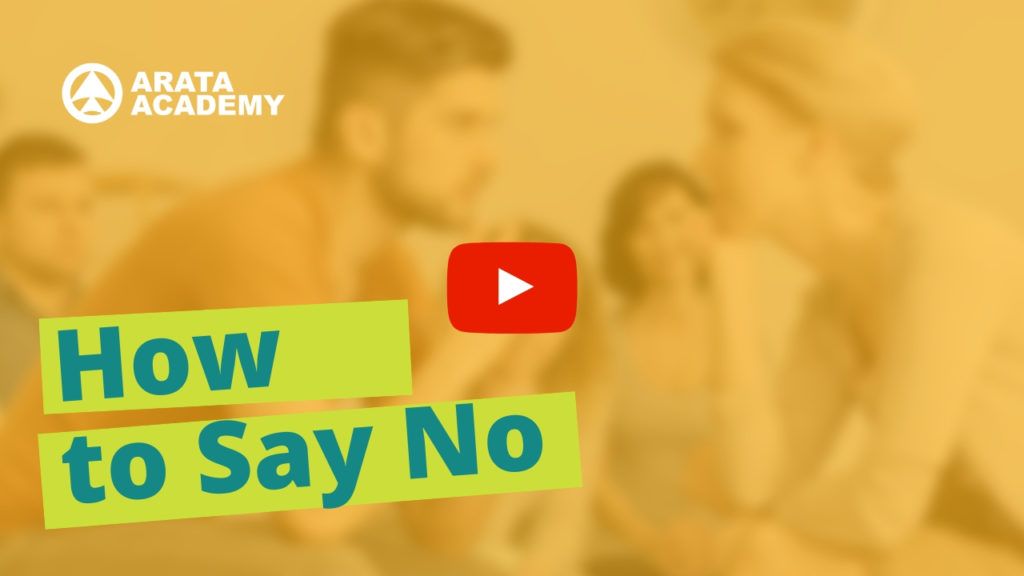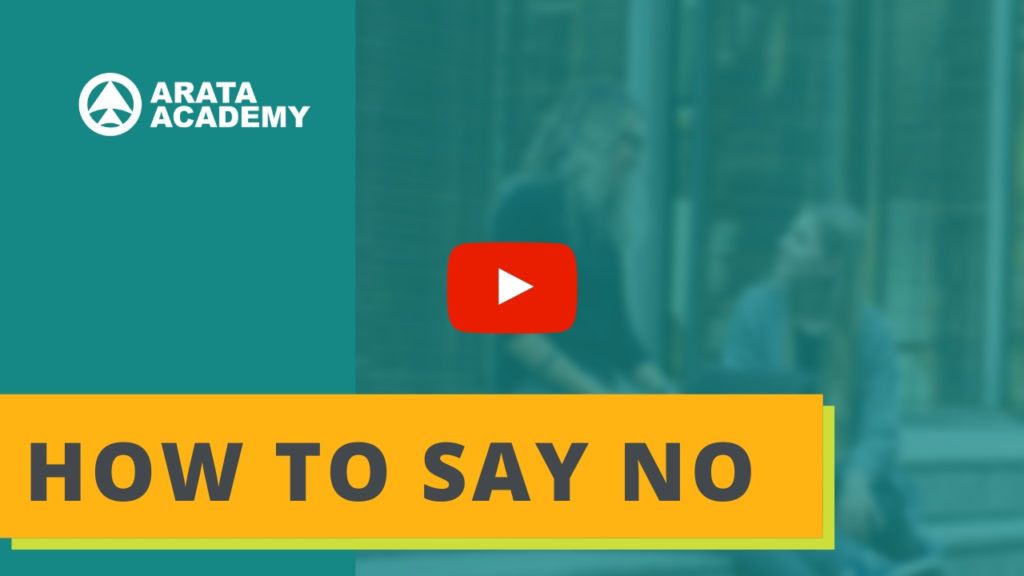Productivity Arata! Have you ever negotiated anything at least once in your life? The answer is yes.
Every day you go into negotiation processes. Negotiation doesn’t happen only when there are several lawyers in suits and ties around a long table.
You negotiate with your friends when you are deciding where to go, you negotiate the division of the chores around the house to see who will clean the floor and who will cook dinner. This is a video about the negotiations you do every day. You negotiate every time you hire a service, and especially when you solve problems and potential conflicts with people who are part of your life.
You can be a good negotiator or an inefficient negotiator, depending on your choices.
1. Be careful as not to crazy talk.
In the crazy talk, two people are speaking but no one is actually talking.
There’s no such thing as single communication here: there will always be two parallel talks taking place.
You will never achieve efficient negotiation if you don’t listen carefully. And you’ll never listen carefully if you are just waiting for your turn to speak. Listening is not a passive thing. Listening is an active action and requires concentration. We’ve seen that in episode 33 of the series Productivity Arata.
You shouldn’t keep on mechanically repeating things like a parrot or a robot either. You want to listen carefully, think about it and then validate your interpretation with the other person.
2. Do not attempt to undervalue others in order to get what you want.
One of the basic needs of the human being is to feel that people care. To feel that they are being valued. They want to know if what they’re doing is appropriate.
We are social creatures and it’s very important for us to have group’s approval. If you try to negotiate by devaluing others’ work, lowering them in order to stay on top, you will be violating this fundamental desire for acknowledgment.
Today’s first practical tip, therefore, is that you must learn to acknowledge other people.
The funny thing is that we rarely see this kind of guidance in negotiation training. Many people believe that they need to be tough, cold, calculating or even actors to hide their true feelings of interest, because if they show that they’re very interested, they may not have the best position in the negotiation.
Now I’ll tell you something: if, on the one hand, it’s true that you don’t want to show that you would accept anything to get what you want, on the other hand you don’t want to offend the other person either.
If you fail to demonstrate your respect, you can completely close the doors for negotiation.
Remember: negotiation isn’t only a formal meeting with lawyers and contracts. Negotiation takes place every day and whenever you need to make a joint decision. This is the negotiation we are talking about here.
When you show your appreciation, you reinforce your connection with the person you are negotiating with and they will be more open to listen to what you have to say and will also have more motivation to use creativity as a way to find a result that is positive for everybody in the negotiation.
When you appreciate the other person, your chances of achieving a good result in the negotiation will increase, because there will be a spirit of cooperation instead of confrontation.
3. Ask the other person to explain what they understood.
It’s important to have an idea of how your message is being perceived by the other person. Tell them that you want to be sure you’ve understood what is important to them and explain what you understood from what they said. Ask them to correct you if you’re wrong.
You can also tell them that you want to make sure that the communication is clear and for that you want to know what they understood about the importance of what you said. Please check this link to find this technique explained in more detail, it’s a very important video for you to improve your communication skills.
If you feel you are in a difficult conversation, instead of saying that the person is angry or that they didn’t understand anything, use metaphors to lighten things up. If you say that they didn’t hear you right, there’s a possibility of them getting nervous. So it may be helpful to use visual language, such as “I think we’re digging ourselves into a deep hole, and we don’t want that. What can we do to get out of this hole?” or maybe “I feel like we are moving in different directions. What can we do to get closer and walk together?”.
4. You can understand without having to agree.
You can focus more on understanding the other’s point of view, to acknowledge the reasons for the person to see the world as they do.
With that, you will find out which emotions are influencing their behaviour, what are the beliefs that limit them, what are the desires that motivate them. Write this down: if you don’t understand the other person, you will never be a good negotiator.
Understanding is a kind of acknowledgement and that doesn’t need to mean that you must agree. You can understand without having to agree.
It’s crucial that you are honest. Your appreciation isn’t a game of reciprocity. If your respect is conditional and is only showed if the other person respects you back, your power of judgment will be reduced. You must start from the first step. Only when you understand how the other person thinks and feels will you be able to overcome the misunderstandings and work together.
5. Keep things simple.
You don’t need to embellish the communication. The most important thing is that you keep both your honesty and clarity. Your goal in this communication is to show that you understand the other person’s thoughts and feelings. So you must communicate that you understand the merits of their point of view. By doing so, you will be validating their perspective.
Some people believe they cannot do that activity because by demonstrating that they understand what they hear the other person may misinterpret that and think that they’re actually agreeing. When that happens, you need to be able to clarify your communication. In the course “How to Say No” you will find the information you need in order to be clear and not to be interpreted the wrong way. “How to Say No” is a crash course that you can do in a single day and that will make people around you pay attention to what you’re saying – visit the website by clicking on this link here.
If your conversation isn’t being easy, try to distance yourself a little from your own point of view and imagine that you are an observer, a third person. Imagine that you are holding a camera and filming the situation.
That’s what the mediator does in negotiations of conflicts. The mediator is that neutral party that moves away from both sides a little to try and understand each of the different points of view. You can do that too. In that activity, try to understand what is important to the other person. What beliefs and emotions do they have? Once you’ve put yourself in their shoes to understand how they see the world, you can try and say the following:
— Listen, it’s very important that I understand you. I hear what you say and I understand that (complete the sentence with what you understood). I recognise that for you it’s important that (say it here). Is that correct? What other aspects do you value and I didn’t get it right?
Listen carefully to the answer and repeat it as often as necessary.
6. Do not force an interpretation of emotions onto the other person.
Some failed communication attempts happen when you assume that the person is feeling what they actually aren’t. That can make them feel judged and misunderstood.
For instance, a person hasn’t passed an important exam. If you tell them:
— I heard that you haven’t been approved. You must be feeling very sad now.
Maybe the other person isn’t sad. Maybe they’re even hoping that they will be approved next time. Maybe they’ve noticed that the test wasn’t as difficult as they had thought. To say that they’re sad is a way of minimising them, and they may not like that.
Therefore, instead of projecting an emotion onto the person, just ask them: — Hey, I heard that you did not get approved in the exam. How are you feeling today?
Finally, treat others as you would like to be treated. Try to remember the times when someone close to you was judgemental as if they knew what you were feeling and made comments that were completely out of place. That’s one of the worst things that can happen. It’s as if the other person was trying to impose you a certain feeling or emotion. You should avoid that behaviour to be able to negotiate better.
As you can see, to negotiate well it’s critical that you improve your communication skills. That’s why I want to invite you to take the course “How to Say No”, which is a course on good communication and better relationships with people who matter to you. Please visit this link now.
You have just learned that a common mistake is to believe that when you acknowledge another person’s point of view you are automatically agreeing with them. That’s a big mistake.
You can understand what they are saying and at the same time have a different opinion. You can understand and disagree. That’s perfectly normal and healthy. It means that you know how to establish healthy boundaries in your life. If you have trouble showing empathy, understanding and at the same time having an independent opinion, then you need to visit the website here.

